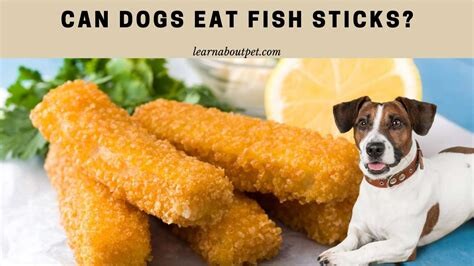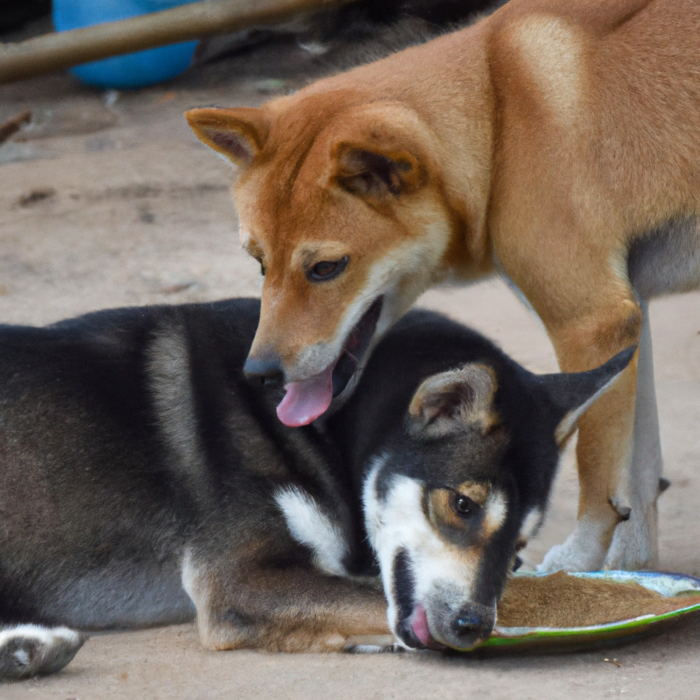Is Turkey Bacon Safe for Dogs? Understanding the Ingredients in Turkey Bacon
Turkey bacon is a popular choice for those looking to provide their dogs with a tasty treat that is also low in fat. However, before offering this delicious snack to your furry friend, it is important to understand what goes into turkey bacon and whether it is safe for dogs to consume. In this blog post, we will delve into the ingredients found in turkey bacon, explore the potential health benefits it may offer to dogs, while also discussing any risks or side effects that may arise. Additionally, we will provide tips on how to introduce turkey bacon into your dog’s diet and offer alternatives for those who wish to explore other options. As always, consulting with a veterinarian is crucial before incorporating any new food into your dog’s diet.
Is Turkey Bacon Safe for Dogs?
When it comes to feeding our furry friends, many pet owners are often looking for healthy and delicious treats to enhance their dogs’ diets. One popular option that often comes to mind is turkey bacon. But is turkey bacon safe for dogs? Let’s take a closer look at the ingredients and potential risks associated with feeding turkey bacon to our four-legged companions.
Turkey bacon is typically made from turkey meat that has been cured, seasoned, and smoked to mimic the taste and texture of traditional pork bacon. However, it is important to note that turkey bacon often contains added ingredients such as salt, nitrates, and artificial flavors.
While turkey bacon may be an enticing treat for dogs, it is essential to understand the possible risks and side effects that can arise from feeding this type of bacon to our canine companions. Firstly, the high salt content in turkey bacon can be harmful to dogs, especially for those with underlying health conditions such as kidney or heart problems. Additionally, the presence of nitrates in turkey bacon can potentially lead to the formation of nitrosamines, which are known to be carcinogenic.
As responsible pet owners, it is crucial to consult with a veterinarian before introducing any new food items to our dogs’ diets. A veterinarian can provide valuable guidance and advice based on your dog’s specific dietary needs, allergies, and overall health condition. They can help determine whether turkey bacon is a suitable treat for your dog or recommend alternative options that are safer and equally delicious.
Understanding the Ingredients in Turkey Bacon
Turkey bacon has become a popular alternative to traditional pork bacon for many dog owners. It offers a leaner option that is lower in fat and calories, making it an attractive choice for those looking to keep their furry friends healthy. However, before introducing turkey bacon into your dog’s diet, it’s important to understand the ingredients that make up this tasty treat.
One of the main ingredients in turkey bacon is, of course, turkey. Turkey is a lean source of protein that provides essential amino acids to support muscle development and overall health. It is generally considered safe for dogs, but it’s important to note that some dogs may have allergies or sensitivities to poultry. If your dog has a known allergy to turkey or other poultry products, it’s best to avoid feeding them turkey bacon.
Another common ingredient found in turkey bacon is salt. This is used to enhance the flavor and preserve the meat. While a small amount of salt is generally safe for dogs, excessive consumption can lead to health issues such as dehydration and kidney problems. It’s important to keep an eye on the sodium content in the turkey bacon you choose and feed it to your dog in moderation.
Nitrates and nitrites are also commonly used in the production of turkey bacon. These compounds help to preserve the meat and prevent bacterial growth. However, there is some debate surrounding their safety in pet foods. Some studies have suggested a link between nitrates/nitrites and certain types of cancer. While the levels found in commercially-available turkey bacon are typically low, it’s still advisable to consult with your veterinarian before including it in your dog’s diet.
Overall, understanding the ingredients in turkey bacon is crucial for dog owners. While it can be a tasty and nutritious treat for some dogs, others may have allergies or health conditions that make it unsuitable. Additionally, it’s important to remember that turkey bacon should always be fed in moderation and as part of a balanced diet. If you have any concerns or questions about feeding turkey bacon to your dog, it’s best to consult with your veterinarian for personalized advice.
- Lean source of protein
- Possible allergies or sensitivities
- Watch for excessive salt content
- Use of nitrates and nitrites
- Consult with a veterinarian for personalized advice
| Ingredient | Purpose |
|---|---|
| Turkey | Lean source of protein |
| Salt | Flavor enhancement and preservation |
| Nitrates and Nitrites | Preservation and prevention of bacterial growth |
Health Benefits of Turkey Bacon for Dogs
Turkey bacon has become a popular alternative to traditional bacon, and many pet owners are curious about whether it is safe and beneficial to feed it to their dogs. In this blog post, we will explore the health benefits of turkey bacon for dogs, as well as some important considerations to keep in mind.
1. High in Protein: Turkey bacon is a good source of protein, which is an essential nutrient for dogs. Protein plays a vital role in building and repairing tissues, supporting a healthy immune system, and promoting proper growth and development.
2. Low in Fat: Compared to regular bacon, turkey bacon is lower in fat. Excessive fat consumption can lead to weight gain, obesity, and related health issues in dogs. By choosing turkey bacon as a treat or occasional addition to their diet, pet owners can help maintain their furry friend’s healthy weight.
3. Rich in Vitamins and Minerals: Turkey bacon contains important vitamins and minerals, such as B vitamins, selenium, and zinc. These nutrients are essential for the overall health and well-being of dogs. B vitamins support energy production, while selenium and zinc contribute to a healthy immune system and help maintain healthy skin and coat.
- Summary:
- Turkey bacon is a good source of protein for dogs, which is necessary for various bodily functions.
- Compared to regular bacon, turkey bacon is lower in fat, making it a healthier option for dogs.
- Turkey bacon also contains important vitamins and minerals that contribute to overall canine health.
| High in Protein | Supports tissue repair, immune system, and growth |
| Low in Fat | Helps maintain a healthy weight |
| Rich in Vitamins and Minerals | Contributes to overall health and well-being |
While turkey bacon can offer some health benefits for dogs, it’s important to note that it should only be fed in moderation. Too much bacon, even the turkey variety, can lead to digestive upset or pancreatitis in dogs. Additionally, it’s crucial to choose turkey bacon without added seasonings or additives, as these may be harmful to your pet.
As always, before making any significant changes to your dog’s diet or introducing new foods, it’s recommended that you consult with a veterinarian. They can provide personalized advice based on your dog’s breed, age, weight, and any existing health conditions.
Remember, while turkey bacon may be a tasty and nutritious treat for your four-legged friend, it should never replace a balanced and complete diet specifically formulated for dogs. Treats should always be given in moderation and should not exceed 10% of their daily calorie intake.
Potential Risks and Side Effects
Turkey bacon has gained popularity as a healthier alternative to traditional bacon for humans. However, when it comes to our furry friends, we need to be cautious about what we feed them. In this blog post, we will explore the potential risks and side effects associated with feeding turkey bacon to dogs.
1. Digestive Issues: While turkey bacon may seem like a tasty treat for your dog, it can cause digestive problems. The high fat content in bacon, including turkey bacon, can be difficult for dogs to digest, leading to gastrointestinal upset such as diarrhea, vomiting, and excessive gas.
2. Pancreatitis: Another potential risk of feeding turkey bacon to dogs is pancreatitis. Pancreatitis is the inflammation of the pancreas, which can be triggered by consuming high-fat foods. Turkey bacon, being a fatty food, can overload your dog’s pancreas and lead to this painful condition.
3. Salt Content: Turkey bacon is often seasoned with salt to enhance its flavor. Excessive salt intake can be harmful to dogs, just like it is for humans. High levels of salt can lead to dehydration, increased thirst, and in severe cases, sodium poisoning. It is crucial to monitor your dog’s sodium intake and avoid foods with excessive salt, including turkey bacon.
| Potential Risks and Side Effects: |
|---|
| Digestive Issues |
| Pancreatitis |
| Salt Content |
In conclusion, while turkey bacon may seem like a tempting treat for your dog, the potential risks and side effects outweigh the perceived benefits. It is essential to prioritize your dog’s health and well-being by opting for safer alternatives and consulting with a veterinarian before introducing any new foods into their diet. Remember, your furry companion relies on you to make the best choices for their overall health and happiness.
How to Introduce Turkey Bacon to Your Dog’s Diet
Turkey bacon is a delicious treat that many dogs love. It’s a great source of protein and can be a tasty addition to your dog’s diet. However, it’s important to introduce turkey bacon to your dog’s diet carefully and gradually. This will help prevent any potential digestive issues or sensitivities that may arise from introducing a new food. Here are some tips on how to introduce turkey bacon to your dog’s diet:
1. Start with small portions: Begin by giving your dog a small piece of turkey bacon as a treat. Watch for any signs of upset stomach or allergies, such as vomiting or diarrhea. If your dog handles it well, you can gradually increase the portion size over time.
2. Cook the turkey bacon thoroughly: Make sure to thoroughly cook the turkey bacon before giving it to your dog. Raw or undercooked meat can pose a risk of bacterial contamination. It’s important to cook the meat until it’s fully cooked and crispy.
3. Mix it with your dog’s regular food: To introduce turkey bacon to your dog’s diet, mix a small amount of diced or crumbled turkey bacon with your dog’s regular food. This will help your dog get accustomed to the new taste and texture. Gradually increase the amount of turkey bacon in each meal until your dog is consuming a suitable portion.
4. Monitor your dog’s reaction: Pay close attention to any changes in your dog’s behavior or health after introducing turkey bacon. If you notice any signs of discomfort or sensitivity, such as vomiting, diarrhea, or excessive gas, discontinue feeding turkey bacon and consult with your veterinarian.
5. Consider your dog’s overall diet: Turkey bacon should only be given as an occasional treat and should not replace a balanced and nutritionally complete diet for your dog. Make sure your dog is getting all the necessary nutrients from their regular food and consult with a veterinarian if you have any concerns.
Conclusion:
Introducing turkey bacon to your dog’s diet can be a fun and tasty experience for both you and your furry friend. By following these tips and monitoring your dog’s reaction, you can safely incorporate turkey bacon into their diet as an occasional treat. Remember to always consult with your veterinarian if you have any concerns or questions regarding your dog’s diet or health.
Alternatives to Turkey Bacon for Dogs
When it comes to finding tasty treats for our furry friends, turkey bacon is often a popular choice. However, if you’re looking for alternatives to turkey bacon for dogs, there are several options to consider. While turkey bacon is generally safe for dogs to eat in small quantities, it’s important to remember that it is still a processed meat and may contain additives and preservatives that could be harmful to your pet’s health over time. Fortunately, there are plenty of other tasty and nutritious alternatives available that can provide a similar flavor and texture without the potential risks.
One alternative to turkey bacon for dogs is lean cuts of roasted or grilled turkey. This can be a healthy and delicious option, as long as you remove the skin and any excess fat before serving it to your furry friend. Turkey breast or tenderloin can make a great treat for dogs, providing them with lean protein and essential nutrients without the added salt, preservatives, and artificial flavors that may be present in processed turkey bacon.
Another alternative to turkey bacon for dogs is homemade treats made with natural ingredients. You can easily make your own dog treats using turkey, such as turkey jerky or turkey meatballs. By using high-quality turkey and avoiding any additives or artificial ingredients, you can provide your dog with a wholesome and tasty snack that they’ll love. Just be sure to watch for any signs of allergies or sensitivities, and always introduce new foods gradually to avoid digestive upset.
Consulting with a Veterinarian Before Feeding Turkey Bacon
When it comes to our beloved furry friends, their health and well-being are of utmost importance. As pet owners, we want to provide them with the best possible care, including their diet. While turkey bacon may seem like a tasty treat for our dogs, it is essential to consult with a veterinarian before introducing it into their diet.
Feeding our dogs the right food is crucial for their overall health and can significantly impact their quality of life. However, not all foods that are safe for humans are safe for our canine companions. Turkey bacon, for example, may contain high levels of sodium and additives that can be harmful to dogs.
Consulting with a qualified veterinarian is key to ensure that your dog’s dietary needs are met and any potential risks are minimized. A veterinarian will have a better understanding of your dog’s individual health requirements and can provide tailored advice about whether turkey bacon is suitable for your furry friend.
During a consultation with a veterinarian, they will consider various factors such as your dog’s age, breed, weight, and any existing health conditions. This information will help them make an informed decision about whether turkey bacon can be included in their diet or if alternative options would be more suitable.
Additionally, a veterinarian can educate you on the potential risks and side effects associated with feeding turkey bacon to dogs. While some dogs may tolerate it well, others may experience digestive issues, allergies, or weight gain. It is important to be aware of these possibilities and understand how to recognize signs of discomfort or adverse reactions in your pet.
In some cases, veterinarians may recommend alternative treats or snacks that are specifically formulated for dogs. These products are often made with healthier ingredients and have undergone rigorous testing to ensure their safety for canine consumption. By choosing these specialized products, you can have peace of mind knowing that you are providing your dog with a treat that is both delicious and nutritious.
To recap, consulting with a veterinarian is crucial before introducing turkey bacon or any unfamiliar food into your dog’s diet. Your veterinarian will be able to provide invaluable guidance and advice tailored to your dog’s specific needs. This will ensure that your furry friend stays happy, healthy, and well-nourished while enjoying their treats.
Frequently Asked Questions
Q: Is turkey bacon safe for dogs?
A: Turkey bacon can be safe for dogs, but it should only be given in moderation and as an occasional treat.
Q: What are the ingredients in turkey bacon?
A: The ingredients in turkey bacon may vary depending on the brand, but it generally includes turkey meat, seasonings, preservatives, and additives.
Q: What are the health benefits of turkey bacon for dogs?
A: Turkey bacon can be a good source of protein for dogs and may provide some vitamins and minerals. However, it should not be considered a staple in their diet.
Q: Are there any potential risks or side effects of feeding turkey bacon to dogs?
A: Feeding too much turkey bacon to dogs can lead to weight gain, digestive upset, and an increased risk of pancreatitis. It may also contain high levels of sodium or other ingredients that are not suitable for dogs.
Q: How can I introduce turkey bacon to my dog’s diet?
A: When introducing turkey bacon to your dog’s diet, start with small amounts and observe how they tolerate it. If there are no adverse reactions, you can gradually increase the serving size but always in moderation.
Q: What are some alternatives to turkey bacon for dogs?
A: Some alternatives to turkey bacon for dogs include lean cooked chicken or turkey, small pieces of fruits or vegetables, and commercial dog treats specifically made for canines.
Q: Should I consult with a veterinarian before feeding my dog turkey bacon?
A: It is always recommended to consult with a veterinarian before adding any new food to your dog’s diet, including turkey bacon. They can provide personalized advice based on your dog’s specific needs and health conditions.





